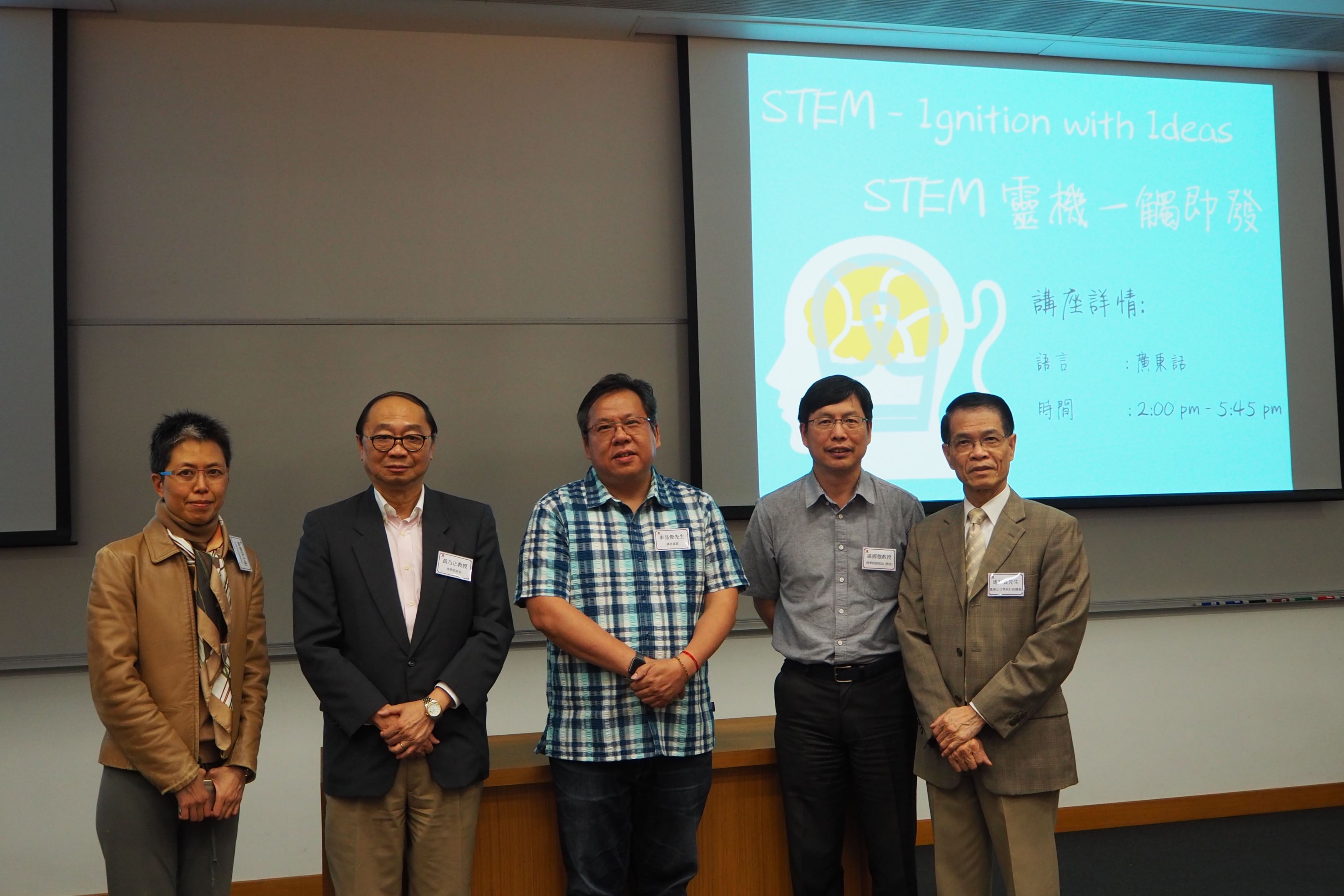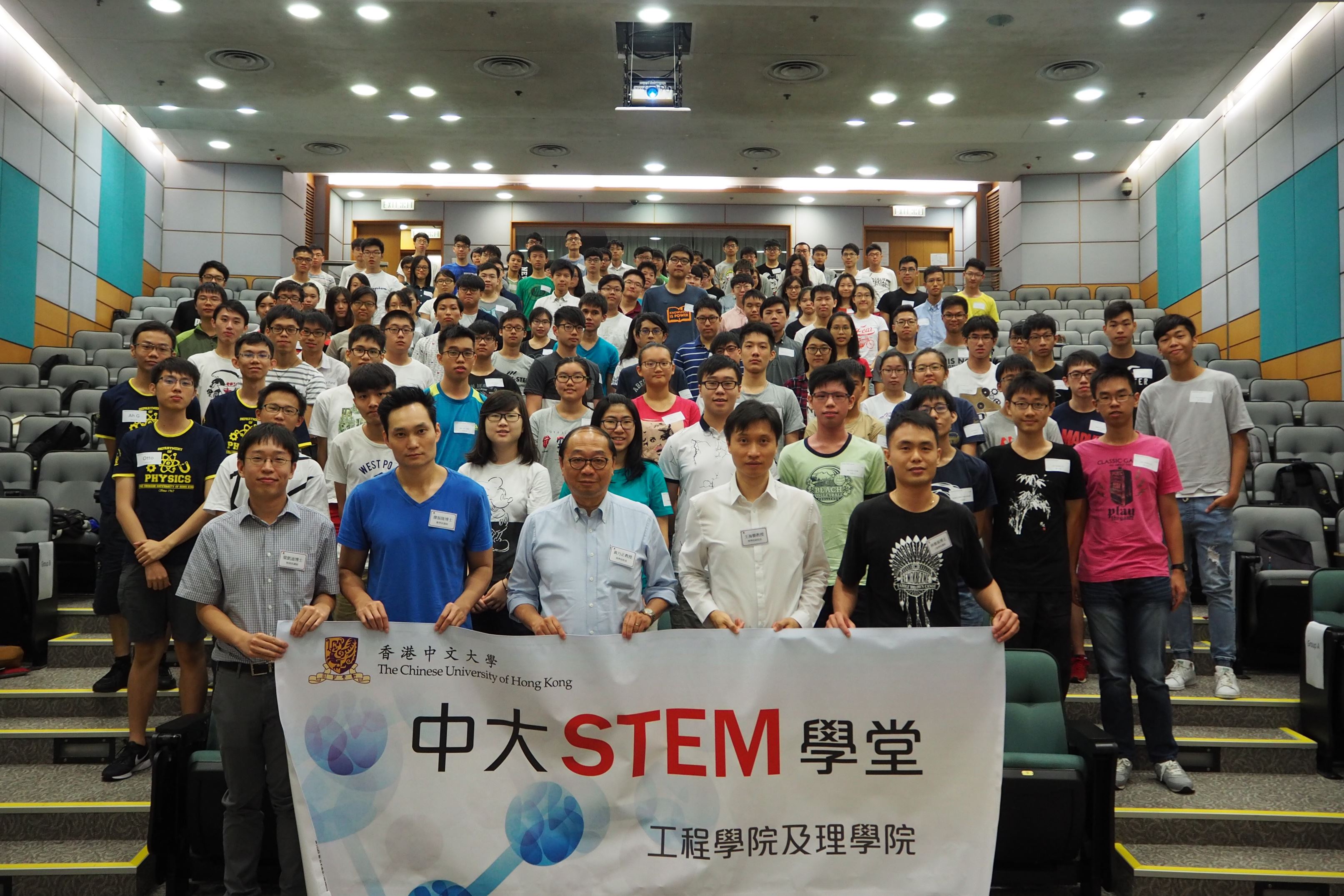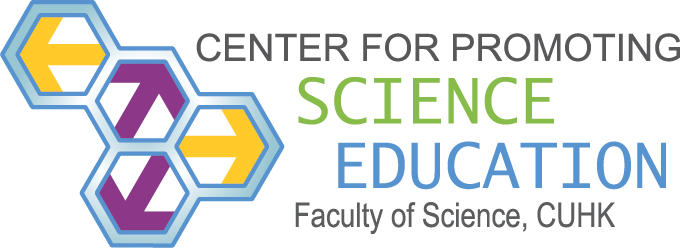Ownership of Innovation and Social Citizenship in Science Experiential Learning (This Scheme) aims at encouraging undergraduate students to initiate a science project (consists of events or tasks or activities) with the purpose to serve the others in the society.
This Scheme emphasizes student-driven and student-centered spirit. Students would be in charge of the whole project, from planning, budgeting to implementing their scientific events or tasks or activities while at the same time, to serve their target group.
Students should first form a team (with a coordinating student and at most three other students) and come up with an innovative idea, of doing something for a decided target group. The team can then start to plan the events or tasks or activities. The team will take care of everything from scratch to finish, including budgeting and financial control, process and logistic arrangement, resource and material acquisition, human effort deployment and management, and final summary and review. Teacher, if any, may act as a supervisor to monitor and provide guidance whenever necessary.
Duration and timelines vary among different teams and projects. Students can decide their own schedule and possibly discuss with their teacher. The project mainly divides into 3 PHASES. Financial support will be provided based on the budget, which may include everything, e.g., recruitment of student helpers. The underlying condition is the spending must satisfy university accounting rules.
| 1. | Enhance your communication, time management and financial management skills |
| 2. | Understand more about scientific process and knowledge |
| 3. | Realize how science may serve the society |
| 4. | Well-planned work with outreach objective may have chance to implement the design in overseas trip. |
| Eligibility | Undergraduates of Science Programme |
| Application period | Any time from now to May, 2019 |
| Register | Online Registration |
Normally, it takes 2-3 months planning and then you will run the activity/ event during a long weekend/ holiday
Science, Technology, Engineering and Mathematics (STEM) education was being promoted by the government in these years. To provide more information and inspiration to secondary school teachers to frame their teaching content and direction, a seminar was hold and 4 experts were invited to share their background and experience about how science contribute to their work:

Background information of Speakers:
To promote Science, Technology, Engineering and Mathematics (STEM) education to secondary school students, a pilot course which is jointly organized by the Faculty of Engineering and Faculty of Science, was launched in summer 2017. The course last for a week and it aimed at providing enhanced training to secondary school students so as to build up a broader foundation for university studies in STEM-related disciplines.
The course, which comprises lectures and tutorials in Mathematics and Physics together with an engineering project, targets to bring forth the essence of STEM through the integration of engineering with mathematical and scientific theories. Learning is achieved not simply through assembling a measuring instrument, but instead, students are required to perform data analysis and optimisation.
More than 100 secondary school students benefited from the course and positive feedback was received. The Centre will review the course and consider if it will be offered under the Science Academy for Young Talent.

| Director: |
| Prof. KWAN Kin Ming Associate Dean (Education), Faculty of Science Programme Director, Natural Sciences Associate Professor, School of Life Sciences Associate Director, Cell and Molecular Biology Programme Associate Professor, Centre for Cell and Developmental Biology Associate Professor, RGC-AoE Centre for Organelle Biogenesis and Function Associate Professor, State Key Laboratory of Agrobiotechnology (The Chinese University of Hong Kong) |
| Associate Directors: |
| Dr. CHEUNG Yu San Senior Lecturer, Department of Chemistry |
| Dr. NGAI Hung Kui Patrick Assistant Director, Biochemistry Programme Lecturer, School of Life Sciences |
| Dr. TONG Shiu Sing Senior Lecturer, Department of Physics |
| Fellows: |
| Dr. CHAN Kai Leung Lecturer, Department of Mathematics |
| Prof. YAM Sheung Chi Phillip Assistant Dean (Education),Faculty of Science Professor, Department of Statistics |
| Prof. YAU Chun Yip Director of Studies, Risk Management Science Program Associate Professor, Department of Statistics |

The Centre for Promoting Science Education (CPSE) is established by the Faculty of Science, The Chinese University of Hong Kong in October 2000 with the aim to promote science education to the public. The Centre devotes itself in organizing varies science activities and courses to enrich scientific knowledge of its target group. The operation of the Centre is also in answer to the development strategy of the Hong Kong Special Administrative Region of China in transforming Hong Kong into international innovation and technology hub.
The Centre shall serve as
1. a database source for research projects and activities on promoting science education by the Faculty of Science, The Chinese University of Hong Kong.
2. a platform to provide the latest information on science and technology to the public.
3. a contact point for school teachers in science and technology.
4. a focal point in advocating education reform, especially in the propagation and advancement of science education.
Tel: 3943 1387
Fax: 2603 7693
E-mail: cpse@cuhk.edu.hk
Address: Room G30, Science Centre North Block, The Chinese University of Hong Kong, Shatin, N.T., Hong Kong.
